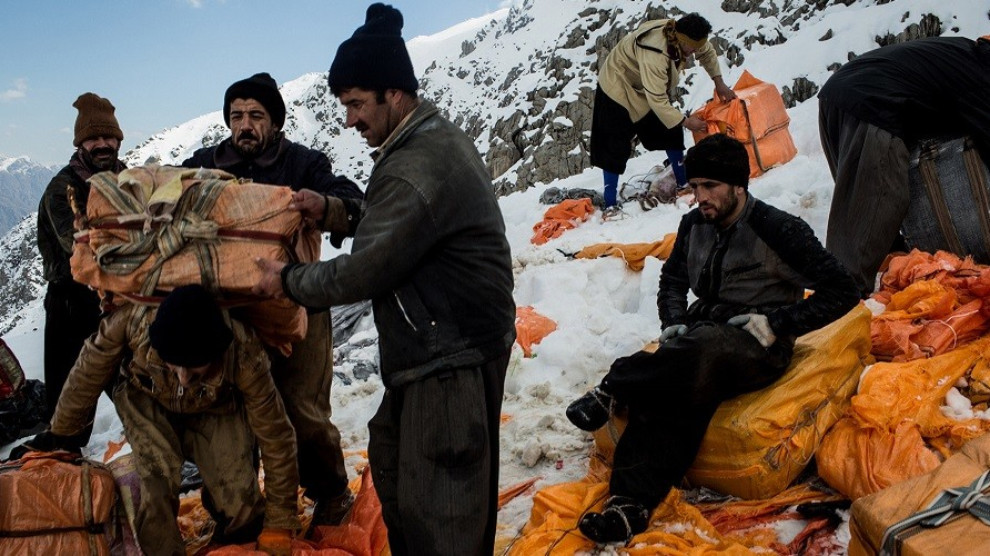Kolbars targeted by Iranian commando units
Iranian regime forces have killed one kolbar and wounded another in their attacks against a group in the Hewraman region of Eastern Kurdistan.
Iranian regime forces have killed one kolbar and wounded another in their attacks against a group in the Hewraman region of Eastern Kurdistan.

Local sources say Iranian regime forces shot kolbars in Hewraman’s Hane Germele village. One of the kolbars lost his life and another was wounded.
Kolbarnews wrote on June 26 that Iranian regime forces murdered 16-year-old kolbar Hemin Salehpur in the Bane province.
Kolbars were attacked in Bane again on June 13. In an attack by the border line near the Zele village, Mihemed Hisen Zade lost his life. He was married with two children. Three other kolbars were wounded.
One kolbar is killed almost every day in Eastern Kurdistan. At least 40 kolbars were killed in April alone last year, and dozens were wounded.
Regime forces patrol the border as commando units and enjoy absolute impunity for their crimes. Their actions are even encouraged by the government.
Eastern Kurdistan has descended deeper into poverty through the years due to deliberate policies by the Iranian regime and stands out as one of the poorest regions in Iran. Compared to other regions, the area has seen significantly less investment and development has been deliberately curbed. Agriculture and industry weren’t allowed to develop, and as a result unemployment rose to highest in Iran.
Faced with policies of discrimination, oppression and impoverishment, carrying smuggled goods is not a choice but a must for survival.
Kolbar comes from the Kurdish words, “kol” (back) and “bar” (load). Kolbars make their living carrying loads along the perilous border line. Their loads include cigarettes, mobile phones, cloths, housewares, tea and seldomly alcohol. They walk through dangerous terrain to continue this trade between Southern and Eastern Kurdistan. The goods they bring are sold at high prices in Tehran, but the kolbars who risk their lives for them are paid very modestly.
The intermediaries who take the deliveries and find buyers in cities are called kasibkars.
Kolbars and kasibkars range from 13 to 70 years old. Some only finished elementary school, while others are university graduates. They carry loads, because they can’t find any other employment. In the last 5 yearss, some 300 kolbars and kasibkars were killed in cold blood. There are no absolute statistics available for the deaths.